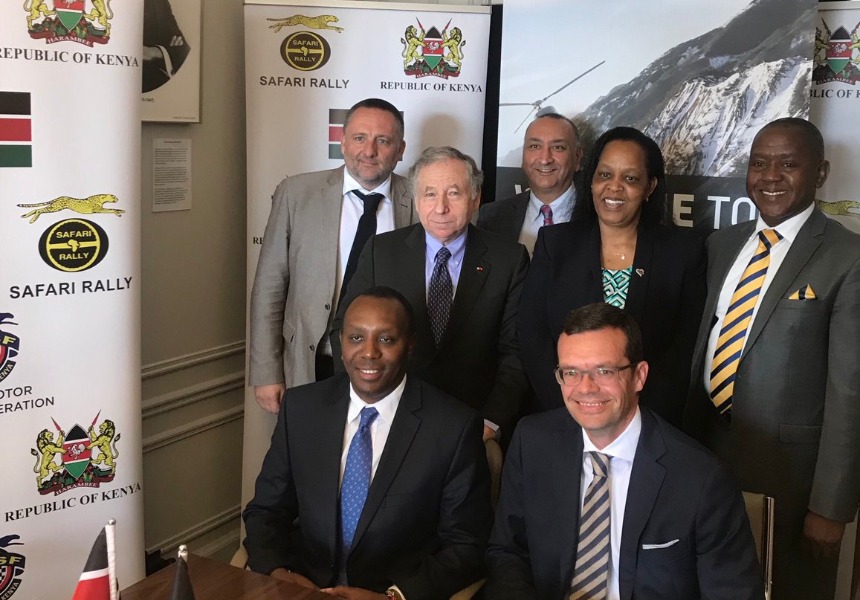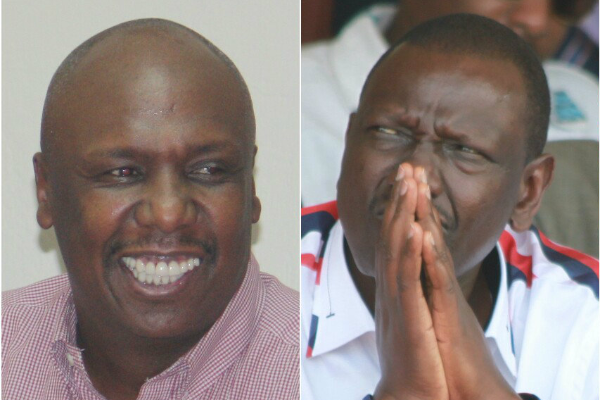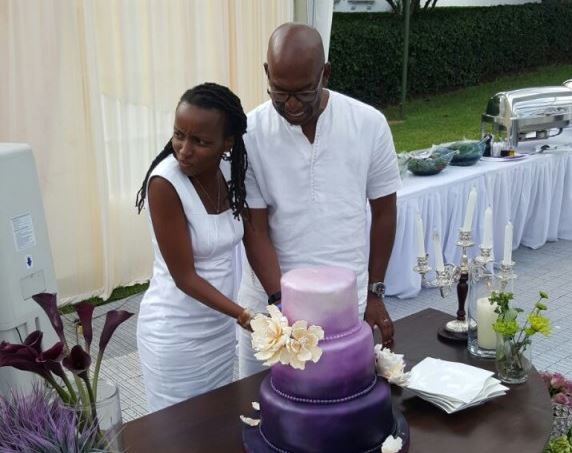It’s good news to all motor rally sports lovers in Kenya as an agreement has been signed between the government and the International Automobile Federation (FIA) rally championship body.
This was revealed on Thursday in a tweet by the International Automobile Federation (FIA) President Jean Todt who is also the UN’s SG for road safety.
“Safari rally becomes official FIA WRC candidate event; signing of the agreement between the government of Kenya & WRC promoter today in Paris at the Automobile Club de France. I hope that will encourage the development of motor sport and road safety in Africa.” Jean Todt tweeted.
This is after a series of changes and improvements that Kenyan organizers have put in place under the guidance of the Federation which will see the return of the classic into the global roaster for the first time since 2002.
This has been able after the government launched a drive earlier to reinstate the rally in into the world rally championship.
The government also earlier launched the “WRC safari rally project” team and allocating it an office at Kasarani.
Jean Todt was in the country earlier February 2018 to inspect the progress of the implementation where he officially opened the offices at Kasarani
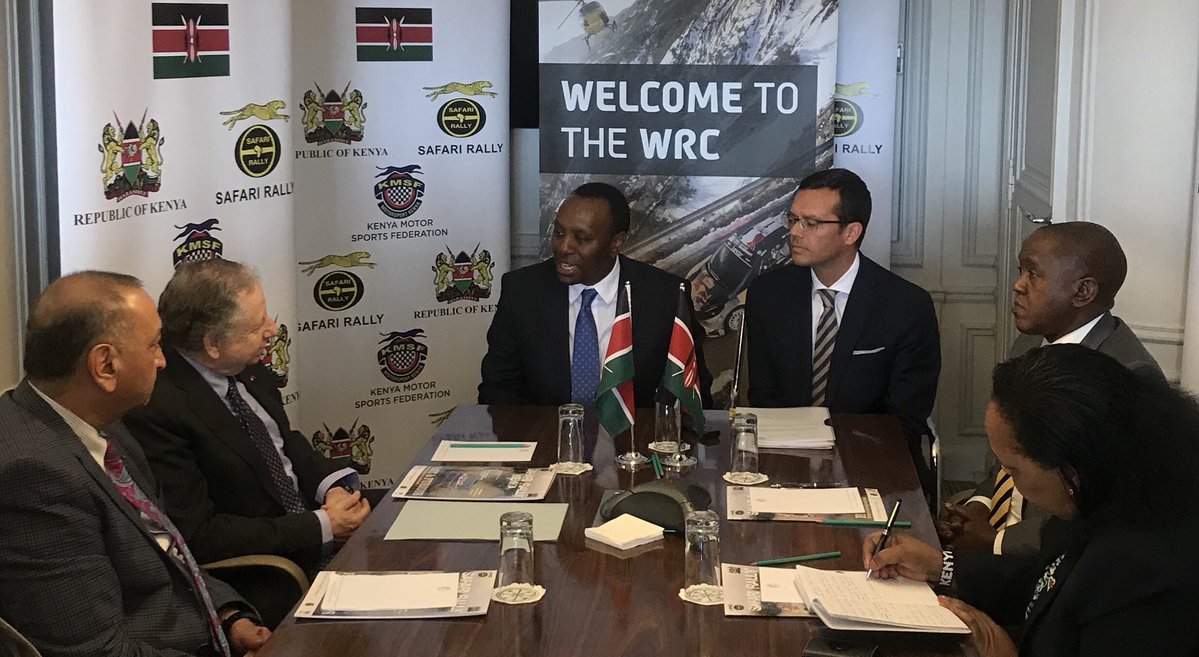
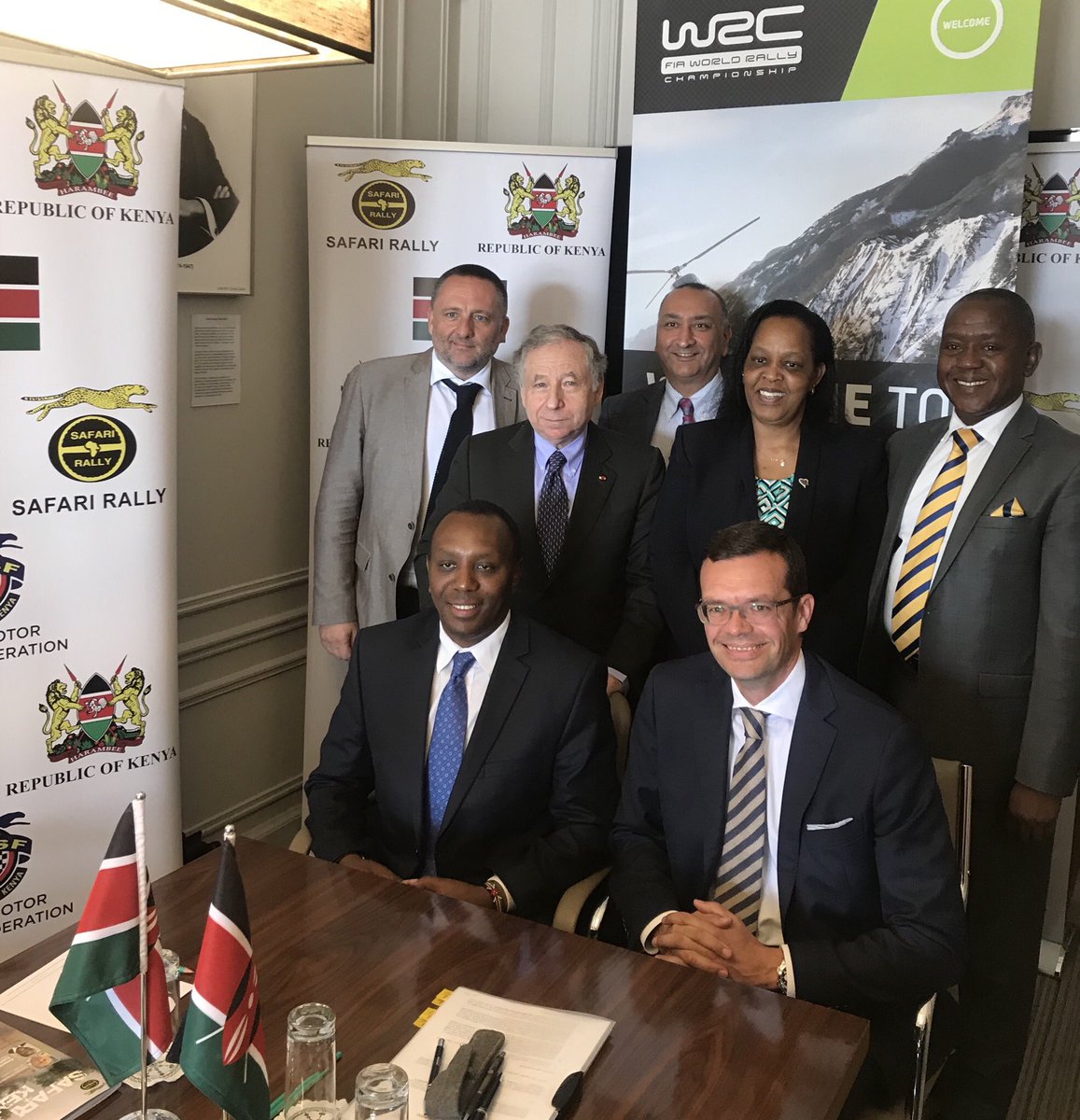
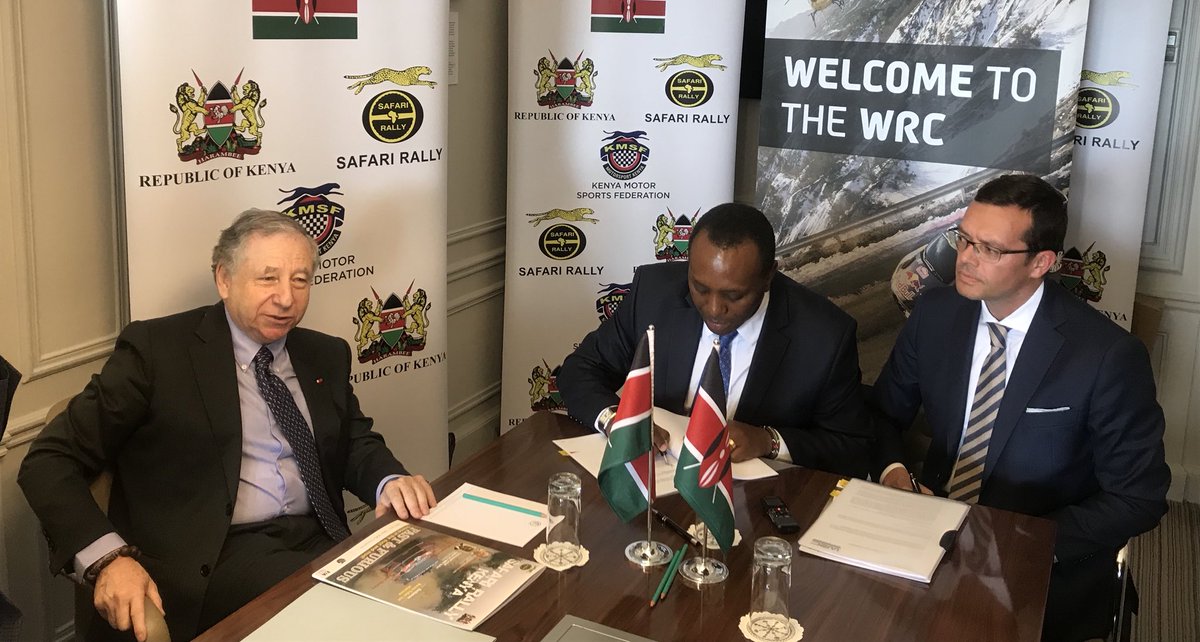
Kenya hopes to a candidate rally next year before having it back as a WRC round in 2020.
The news was well received by many rally lovers who replied to the tweet as they expressed their delight and relief that “the good old days are back” as one of them tweeted.
It has been know as Safari Rally since 1974 but was previously known as East Africa Safari Rally from 1960-1974
The original name was East African Coronation Safari when it was first held in 1953 as a celebration of the coronation of Queen Elizabeth II.
It is notorious for being far the most difficult rally in the WRC championship to win.
In 1996 the event adopted special stage format up until 2002, it featured over 1000km of timed stages; with stages well over 60km long unlike other rallies which had 500 km of total distance.
The winner’s total time therefore was above 12 hours in 1996 to two seconds shy of 8 hours in 2002.
The event was part of the World Rally Championship calendar until 2002 when it was excluded due to the lack of finance and organization.
